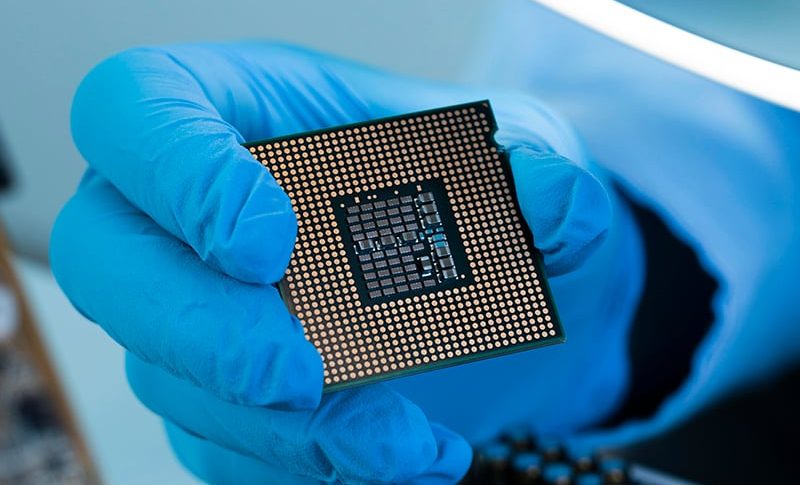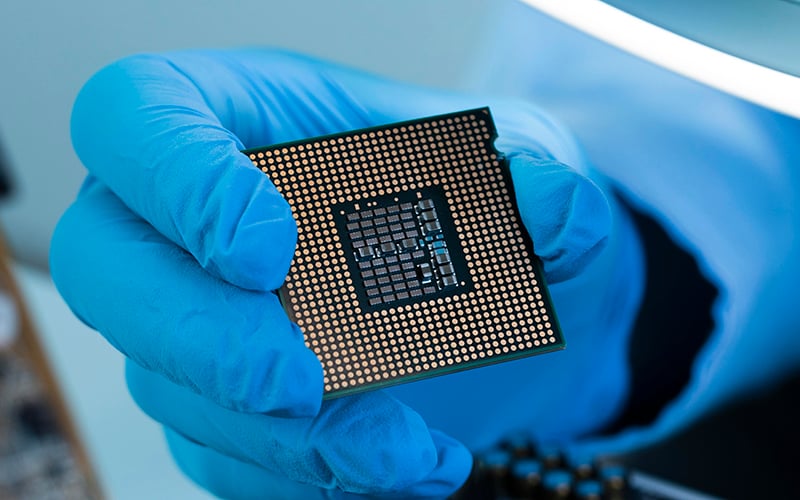Chips Fall: Nvidia Stock Dives 10%, Faces $5B Hit, ASML Shares Down 6%
ASML's stock is down 6% today after missing Chinese orders, while NVDA is down 10% on worries of a similar failure from Nvidia.

Quick overview
- ASML's share price fell 6% after reporting weaker-than-expected orders from China, despite beating earnings forecasts.
- Nvidia's stock dropped over 8% due to a significant impairment related to its AI chips and concerns over U.S. export restrictions to China.
- The semiconductor sector is facing challenges from both declining demand and increasing political scrutiny, particularly regarding U.S.-China relations.
- Investors are bracing for potential volatility in chip stocks as they await further earnings reports from other industry players.
ASML’s stock is down 6% today after missing Chinese orders, while NVDA is down 10% on worries of a similar failure from Nvidia.

Chip Stocks Slide as ASML Order Miss Rattles Markets
U.S. stocks opened under pressure today, with the Nasdaq 100 falling over 1% amid a sharp downturn in major tech and semiconductor stocks. Leading the decline was ASML, whose latest earnings report included a disappointing figure on new orders from China, setting off a wave of selling in the chip sector.
ASML Chart Daily – Below $650 Again
Although the Dutch chipmaking equipment giant topped earnings expectations with a first-quarter net profit of €2.36 billion and earnings per share of €6, well above the forecasted €5.74, investors were spooked by a shortfall in forward-looking metrics. ASML’s Q1 revenue rose to €7.74 billion from €5.29 billion year-on-year, but net bookings came in at just €3.94 billion—well below the anticipated €4.89 billion.
The stock dropped 6% in the U.S. session, sliding from $683 to $645 and giving back a portion of the previous week’s 17% gain. The sharp reaction highlights investor concerns over softening demand in China and the broader uncertainty clouding global semiconductor orders amid geopolitical friction.
Nvidia Leads Decline as U.S.–China Chip Tensions Mount
The tech selloff deepened as Nvidia shares tumbled more than 8%, breaking below the key $100 threshold. The move followed the company’s announcement of a $5.5 billion impairment related to its H20 AI chips, which face export restrictions to China.
The write-down reflects the deteriorating trade relationship between the U.S. and China, which has tightened curbs on advanced tech imports. Nvidia, once heavily reliant on Chinese demand, is now facing a sudden revenue vacuum in a key growth market.
Adding to the pressure, reports surfaced that U.S. Senator Elizabeth Warren has called on the Commerce Department to halt exports of high-end AI chips, citing risks that the technology could be used for military or surveillance purposes in China. The heightened scrutiny amplified investor unease, prompting a deeper retreat in broader semiconductor names.
Nvidia Chart Daily – Breaking Below the 200 SMA Above $100 
Nvidia, which opened the session 6% lower at $104.55, led the broader semiconductor retreat. Other chip stocks, including AMD and Palantir, also faced steep losses, contributing to the Nasdaq Composite’s 2.3% drop on the day.
Uncertain Outlook for the Semiconductor Industry
The latest developments underscore the growing challenges facing the global chip sector. ASML’s drop in new orders signals weakening demand trends, particularly from China, while Nvidia’s impairment highlights the political headwinds affecting sales and global supply chains.
With geopolitical tensions heating up and signs of cooling demand emerging, chipmakers may struggle to maintain momentum heading into the second half of the year. Market participants will be watching closely as other semiconductor firms release earnings, hoping for clues on whether
Nasdaq Live Chart
- Check out our free forex signals
- Follow the top economic events on FX Leaders economic calendar
- Trade better, discover more Forex Trading Strategies
- Open a FREE Trading Account





